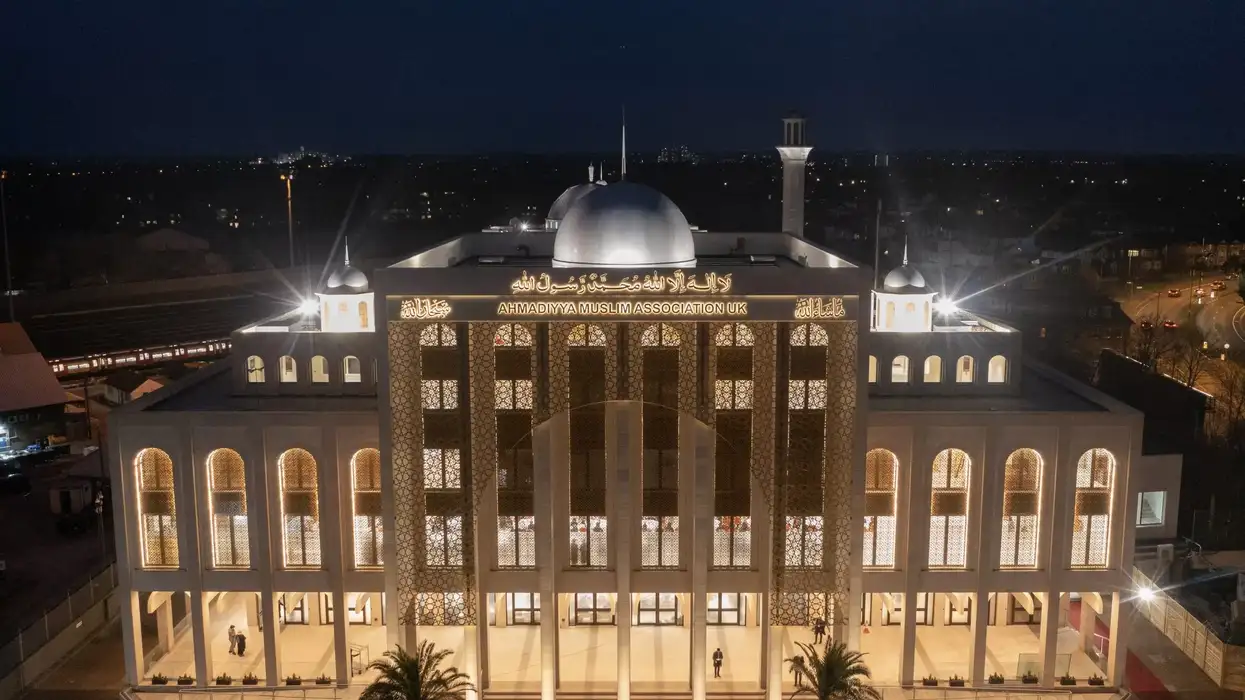Following a devastating fire in 2015, UK’s largest mosque, Baitul Futuh Mosque, had its grand reopening at the 2023 National Peace Symposium of the Ahmadiyya Muslim Community over the weekend (04).
The Baitul Futuh Mosque, located in south London's Morden district and capable of holding up to 13,000 worshippers, had its prayer hall survive the fire while the administrative block, housing function rooms, was destroyed.
The blaze had destroyed nearly a third of the mosque complex, including multi-purpose halls. The iconic mosque now boasts a new complex after the extensive rebuilding process.
The administrative block is now rebuilt using imported stone from Portugal.
The rebuild, fully funded by the Ahmadiyya community, also includes improved facilities such as education for children, according to the mosque officials.
Mohammed Nasser Khan, the Vice President of the Ahmadiyya Muslim Association UK, made the announcement.
"But more importantly for me personally, and I think for many members of the community, is that our neighbours and all the people that visit these premises, that they have a facility that they can be proud of also," he told AFP.
The Ahmadiyya sect, with around 35,000 followers in the UK out of a total of approximately four million Muslims, faces persecution in their home country of Pakistan where they are considered heretics.
The sect is renowned for being resolutely pacifist and holds a stance against the military interpretation of jihad (holy war).
The Morden complex bears the inscription "Love for all, hatred for none" at its entrance.
The 2015 fire was initially blamed on a sixteen-year-old boy; however, he was later cleared of arson at a trial in 2017.
After the completion of the reconstruction, London's landscape now features a stunning new five-story structure that costs £20 million.
The complex offers office space, and guest rooms, and hosts a variety of religious, sports, and community events for community members and locals.
The worldwide Head and Caliph of the Ahmadiyya Muslim Community, Hazrat Mirza Masroor Ahmad, inaugurated the new complex at the National Peace Symposium, the 17th such symposium held to date.
The event was attended by numerous parliamentarians, diplomats, academics, and representatives from various charities and faith communities.
With inputs from AFP




